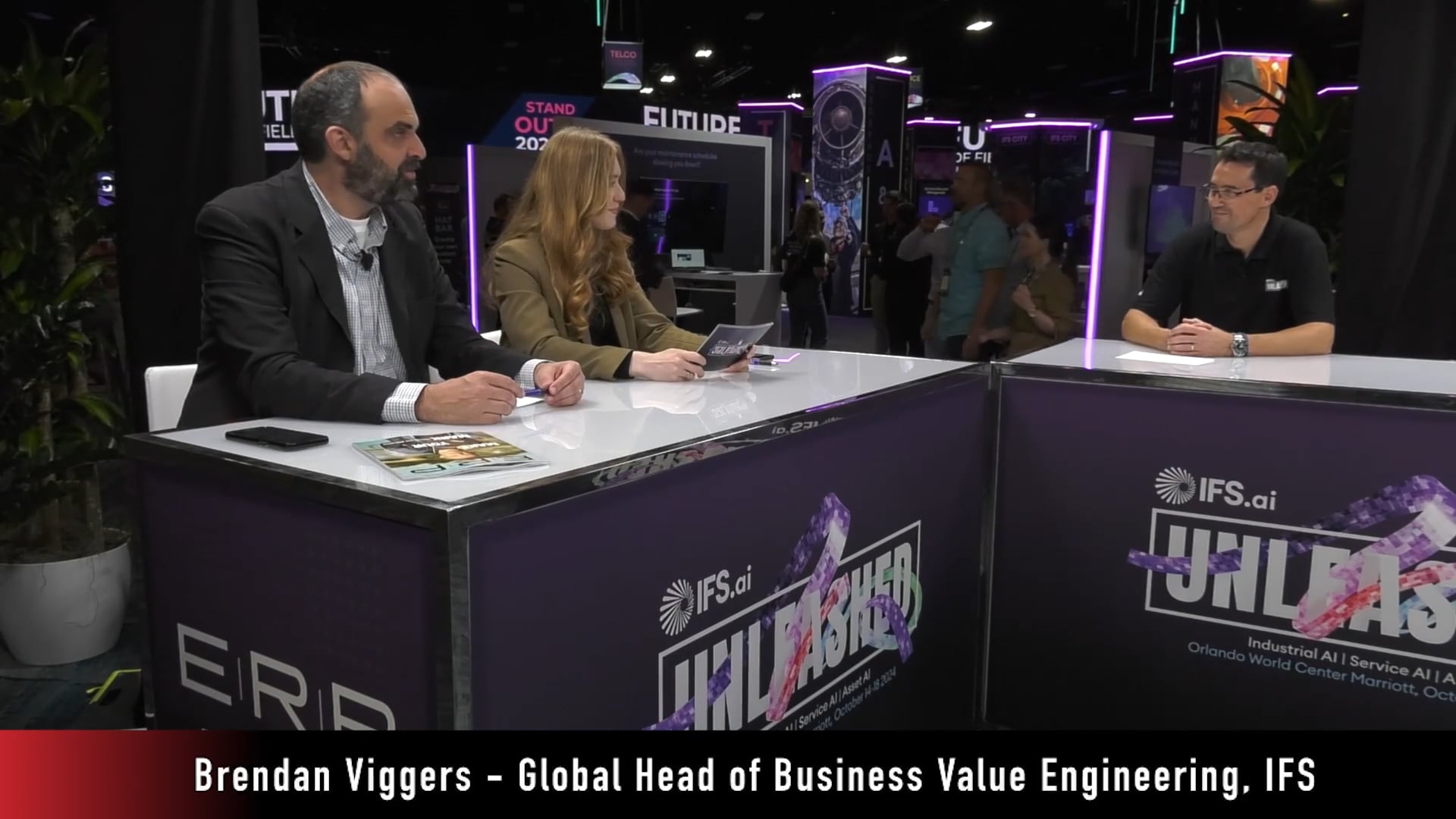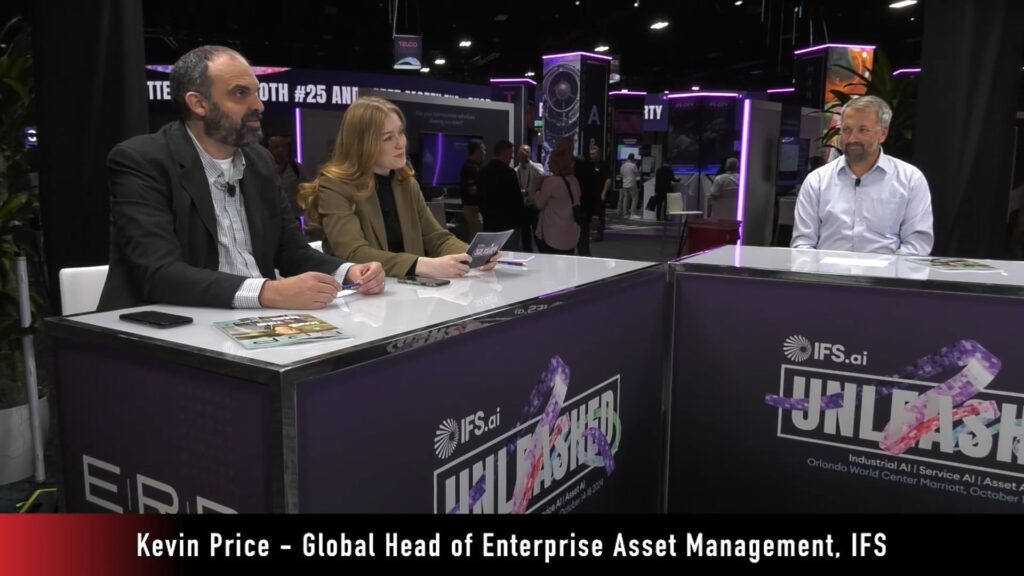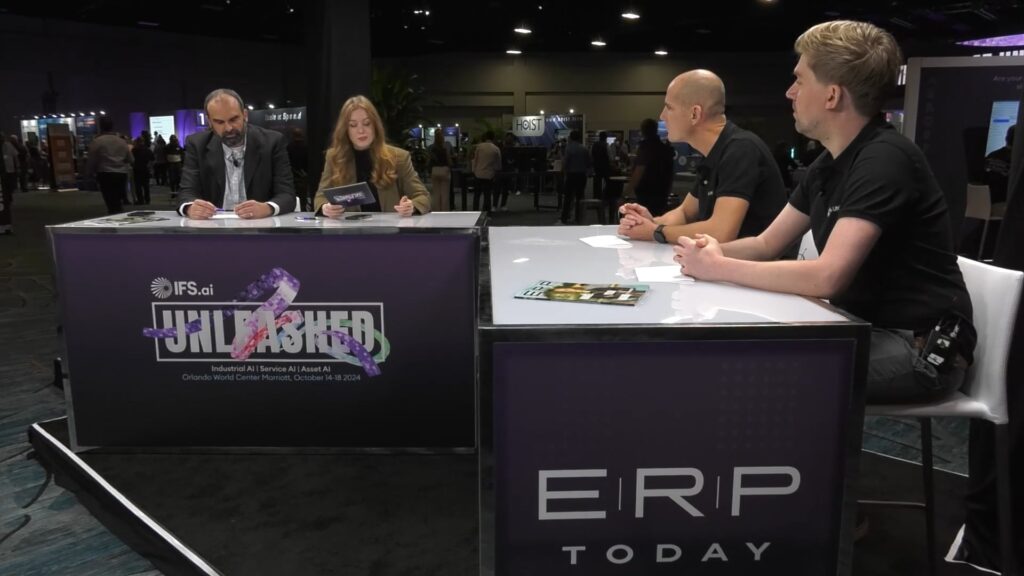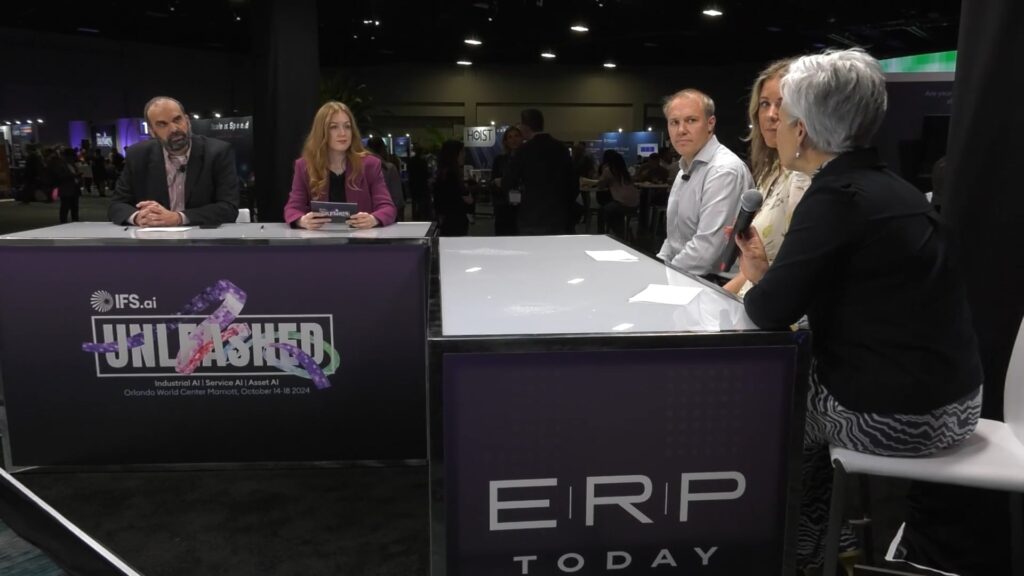Reporting from the ERP Today News Desk, live at the IFS Unleashed event in Orlando, Florida, Mark Vigoroso, chief content officer, ERP Today/Wellesley Information Services and Stephanie Ball, deputy editor, ERP Today, sit down with Brendan Viggers, global head of business value engineering, IFS, to hear how AI is powering greater returns on software investment for enterprises.
IFS has been developing AI-powered business value engineering tools, claiming there is potential to uncover $16bn across IFS target markets in terms of potential savings to be reaped. No doubt an attractive proposition for customers, ERP Today digs deeper into how the technology would work in practice.
Viggers says: “We’ve done over 1000 business value assessments now with our customers during the pre-sales activity where we try to really uncover the business potential and it’s around $16bn in terms of potential savings. It’s about $3bn in terms of new revenue opportunities, and we look at that in terms of costs, productivity, revenue, risk and compliance.”
Explore related questions
Value discovery has been a long-winded process
For the last five years, IFS has been working with customers to aid value discovery, but as Viggers explains, it has previously been a long process: “Part of that process is to do what we call value discovery. It really helps us to uncover what those outcomes that the customer wants to achieve are. So, when we move into post-go-live, the customer can actually start to see value realization.
“We would go in as a team of value engineers and sit with the customer and say, ‘What process do you run? What about in accounts payable? As a buyer, how would you work today? It’s a long-winded process. It’s difficult because you don’t know what you don’t know. How do you uncover the unhidden potential if you don’t know what that is? It’s a very traditional way of doing discovery.”
IFS, Deloitte and Celonis: Industrial AI and process mining
Now, working with Deloitte and Celonis, IFS is applying its industrial AI and process mining tools to improve this service and help customers discover hidden business outcomes and realize more value faster.
Viggers says: “What we’ve been doing is working with Deloitte to say is there an industrial AI way of looking at this in a slightly different way. We’ve used a GPT model as part of that, so you can load in emails, memos, process model diagrams, maybe a process quality model, notes you’ve written, and then use it to analyze how your business is working today. Then combined with Celonis we can uncover all the system architecture as well to uncover a roadmap or a digital twin of what that process looks like.”
With a simple analogy, Viggers helps paint a picture of how this experience works in practice: “You’re in your car and you turn on your SAT Nav, the first thing you put into it is the destination, the second question – where are you? It needs those two bits of information to be able to tell you the best route. We can apply that same analogy to what we are doing here – by using AI, I can come up with where I want to go using benchmarks and KPIs. It can tell how you’re currently working and then guide you in the best possible way. This is real-time transformation.”
This method would even be able to consider any necessary changes throughout your technology journey, Viggers claims: “If along the way your strategy changes or new business initiatives come in you can adjust accordingly with your digital twin. It’s going to really help customers evolve how they are currently operating.”
How might this technology evolve?
Looking further ahead, Viggers suggests that AI value engineering technology has even more to offer in terms of its uses with composable architecture, seeing the outcome of a digital transformation journey before you invest. For instance, that could include the costs or the outcome of making a change by using scenario planning and forecasting what future processes might look like with digital twins, or else by questioning a copilot. Moreover, the potential is there to assess competitors too – all together helping businesses evolve faster and gain and get faster time to value.
Note: This ERP Today TV content comes sponsored by IFS.




